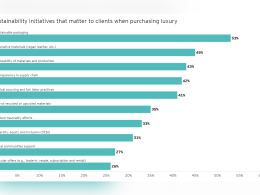Diversity, Equity, and Inclusion (DEI) has shaped corporate and institutional strategies for decades. What started as a response to civil rights legislation and anti-discrimination laws eventually became a business necessity, with research linking diversity to innovation and better financial performance. However, recent political shifts, legal challenges, and economic pressures have led many companies to scale back their DEI commitments. This article takes a closer look at how DEI evolved, why it gained traction in business, and what’s driving the current retreat.
The origins of DEI
The roots of DEI trace back to the Civil Rights Movement of the 1960s, which led to landmark legislation like the Civil Rights Act of 1964. This law banned discrimination based on race, gender, religion, and nationality, paving the way for affirmative action policies aimed at increasing opportunities for historically marginalised groups.
By the 1980s and 1990s, DEI became more than just a legal requirement—it turned into a strategic business priority. Companies started recognising that diverse teams bring fresh perspectives, drive creativity, and help businesses connect with broader markets. Consulting firms like McKinsey & Company backed this up with data showing a strong link between diversity and financial performance.
How McKinsey and other consulting firms elevated DEI
McKinsey & Company played a major role in shaping DEI as a core business strategy. Their 2020 report, Diversity Wins: How Inclusion Matters, found that companies with diverse leadership teams performed 25-36% better financiallythan their competitors. Other consulting giants like Deloitte, Accenture, and KPMG also pushed for DEI integration, offering services to help companies build inclusive work environments.
By the early 2000s, corporate America was investing billions in DEI programmes, weaving diversity metrics into hiring, training, promotions, and performance evaluations. This movement spread globally as multinational corporations saw DEI as not just the right thing to do, but also as a competitive advantage in an increasingly diverse market.
The DEI backlash: Why companies are pulling back
Despite its widespread adoption, DEI is now facing pushback across industries. Several key factors are behind this shift:
1. Legal and regulatory challenges
The 2023 U.S. Supreme Court ruling striking down affirmative action in college admissions raised concerns about similar policies in corporate settings.
Several Republican-led states have passed laws limiting DEI programmes in public institutions and adding restrictions on businesses and federal contractors.
In 2025, President Donald Trump issued executive orders dismantling DEI policies in federal agencies and discouraging corporate DEI practices, forcing companies to re-evaluate their strategies.
2. Fear of lawsuits
Companies like Starbucks, Pfizer, and Morgan Stanley have been hit with reverse discrimination lawsuits, where plaintiffs argue that DEI policies unfairly disadvantage white and male employees.
Shareholder groups and legal organisations are putting pressure on firms to scale back DEI spending to avoid legal and financial risks.
3. Political and cultural backlash
Conservative activists and politicians have labelled DEI initiatives as “woke” and have called for boycotts, legal challenges, and corporate accountability.
High-profile business leaders like Elon Musk and Peter Thiel have publicly criticised DEI, arguing that it puts identity politics over merit-based hiring and performance.
4. Financial and economic pressures
With economic downturns and corporate restructuring, companies are cutting non-revenue-generating initiatives, including DEI programmes.
Major tech firms such as Meta, Google, and Amazon have laid off their DEI teams, citing cost-cutting efforts and efficiency improvements.
5. Reputational Risks
Companies are finding themselves caught between conservative and progressive stakeholders. Some are quietly shifting their language, replacing explicit DEI branding with terms like “inclusive hiring” and “talent development.”
Companies scaling back DEI initiatives
Several high-profile corporations have dialled back their DEI commitments, including:
Consulting Firms: Deloitte, KPMG, and Accenture have reduced DEI-related programmes, especially those tied to government contracts.
Multinational Corporations: Citigroup, Target, Walmart, and PepsiCo have restructured or phased out certain DEI policies due to regulatory and political factors.
Tech Giants: Meta, Google, and Amazon have downsized DEI teams and shifted focus towards broader workforce management.
Financial Institutions: Goldman Sachs and Morgan Stanley have quietly moved away from diversity-focused investment strategies to sidestep legal risks.
How the US backlash might influence Europe and Asia
The shifting stance on DEI in the US is unlikely to remain an isolated phenomenon. As multinational corporations recalibrate their DEI strategies to align with new legal and political realities in America, the ripple effects could be felt in Europe and Asia.
In the European Union, where corporate sustainability and social responsibility frameworks are deeply embedded in regulatory structures like the Corporate Sustainability Reporting Directive (CSRD) and European Sustainability Reporting Standards (ESRS), companies may face pressure to reaffirm their DEI commitments. However, businesses with US-based operations may tread more carefully, avoiding explicit DEI branding in favour of broader inclusion and talent development initiatives.
In Asia, where cultural and legal perspectives on diversity vary significantly, the response will likely be mixed. Countries like Japan and South Korea, which have been slower to adopt DEI policies, may deprioritise these initiatives. Meanwhile, markets like Singapore and India, where multinational corporations have promoted inclusive hiring and leadership diversity, may observe a more nuanced shift—companies could opt to decouple their regional DEI policies from those in the US.
What’s next for DEI?
While DEI is experiencing a major recalibration, it’s unlikely to vanish altogether. Experts predict that companies will adopt more legally defensible approaches, integrating inclusive hiring within broader workforce development initiatives. According to a 2025 Harvard Business Review report, businesses that sustain DEI efforts—through mentorship programmes, leadership training, and targeted hiring pipelines—continue to see benefits in innovation, retention, and market relevance.
Conclusion
The rise and retreat of DEI reflects the intersection of business, politics, and law. While some companies are retreating due to legal, financial, and reputational risks, others are quietly reshaping their inclusion strategies under different branding. As the political landscape shifts, so too will corporate DEI strategies, adapting to new realities while still aiming to build diverse, high-performing workplaces.

















